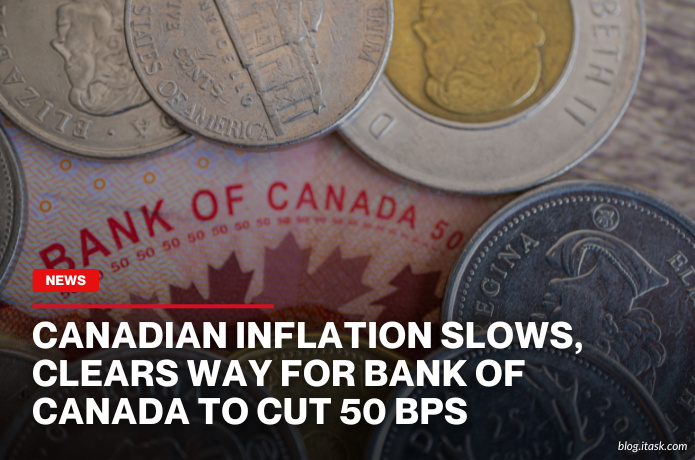Canadian Inflation Slows, Clears Way For Bank of Canada To Cut 50 BPS
Canadian Inflation Slows, Clears Way For Bank of Canada To Cut 50 BPS

In recent news, Canada’s inflation rate has seen a notable drop, primarily influenced by declining gasoline prices, which significantly impacted September’s Consumer Price Index (CPI) results. The annual CPI growth rate decreased to 1.6%—the lowest since early 2021. This sharp decline raises concerns about whether the economy will slow too quickly, prompting potential action from the Bank of Canada (BoC).
Despite gasoline's impact, core inflation, which excludes volatile items like food and energy, remained stable. The BoC’s preferred core CPI measures were largely unchanged, which experts see as a signal that inflationary pressures haven’t diminished across all categories. Analysts believe this stability could allow the BoC to adjust interest rates without fear of igniting overall inflation too strongly.
As inflation slows, many economists predict the BoC may soon lower its key interest rate by 50 basis points (bps). This would follow the bank’s recent tone emphasizing concerns about an economic downturn and low inflation risks. By easing rates, the BoC aims to support the economy by reducing borrowing costs for consumers and businesses.
Market experts are divided, however, on the exact timing of the rate cut. While some see immediate action as likely, others suggest the BoC may wait to evaluate next month’s inflation data to ensure a stable long-term economic path.
